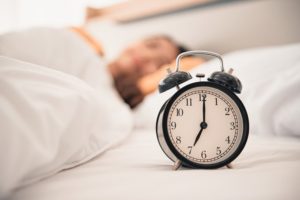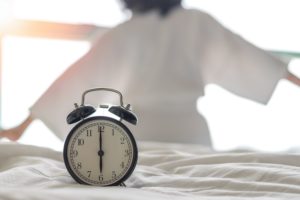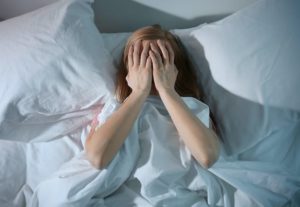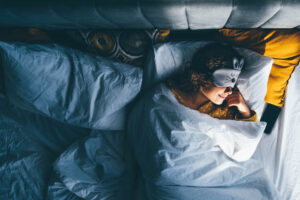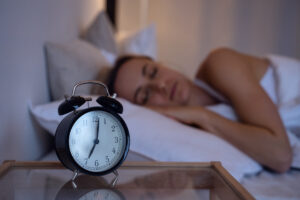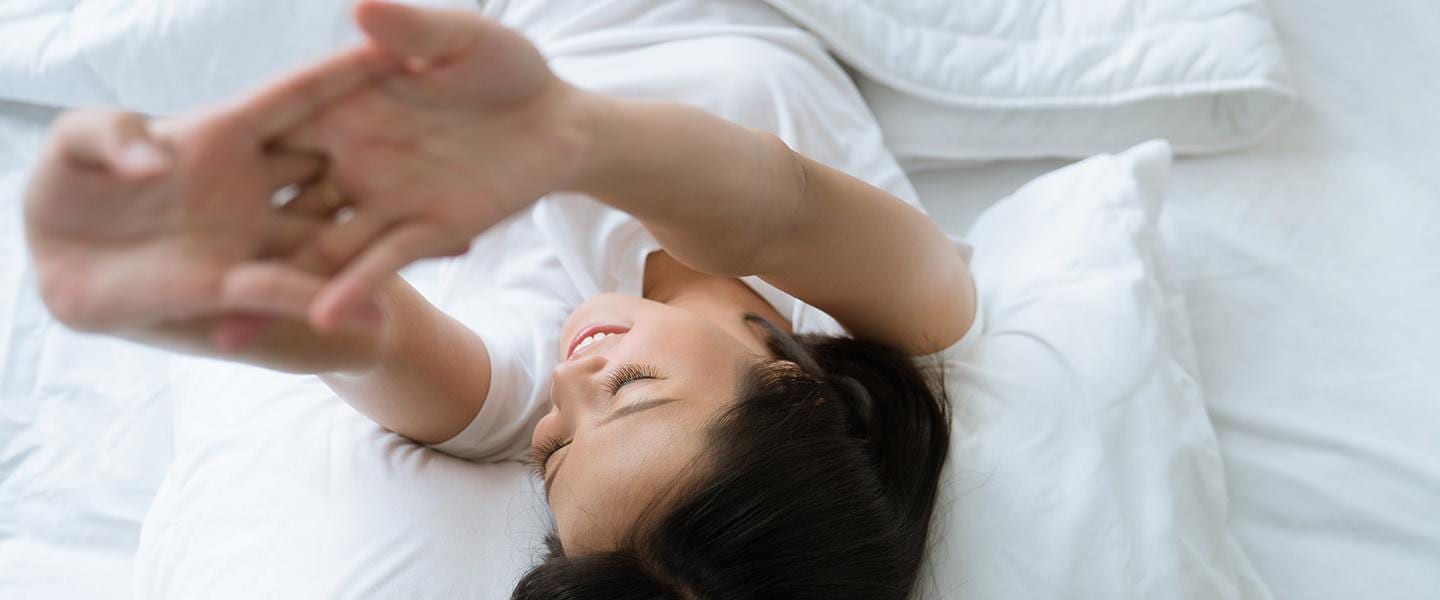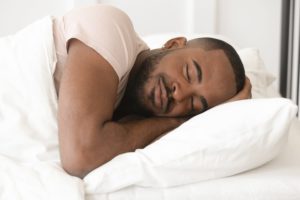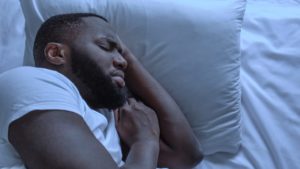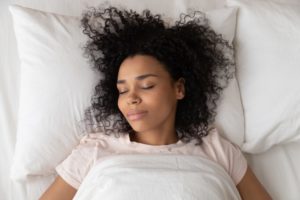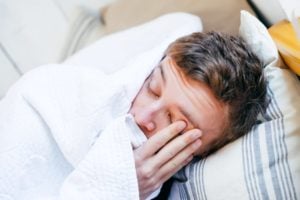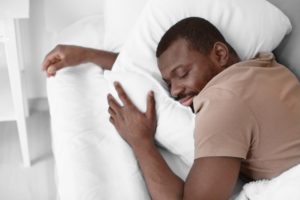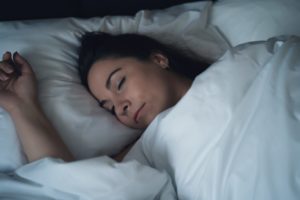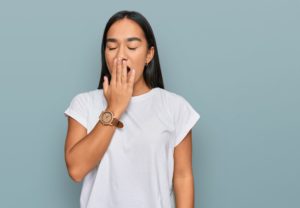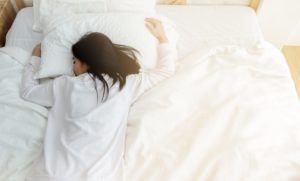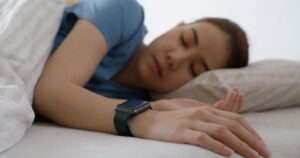When you buy through our links, we may earn a commission. Products or services may be offered by an affiliated entity. Learn more.
Does Daytime Tiredness Mean You Need More Sleep?
Daytime tiredness refers to the persistent feeling of drowsiness and fatigue experienced during waking hours. It goes beyond the normal fluctuations in energy levels and can significantly impair an individual’s ability to function optimally.
Sometimes daytime tiredness has an obvious cause, like staying up to take care of a newborn, or pulling an all-nighter to study for an exam. In other cases, the cause is less obvious and you may feel tired during the day even after a full night of sleep.
Signs You’re Not Getting Enough Sleep
One of the main contributors of daytime tiredness is simply not getting the recommended amount of sleep you need each night. While adults generally need at least seven hours of sleep each night, surveys have found that nearly one third of adults in the U.S. get less than that on a regular basis.
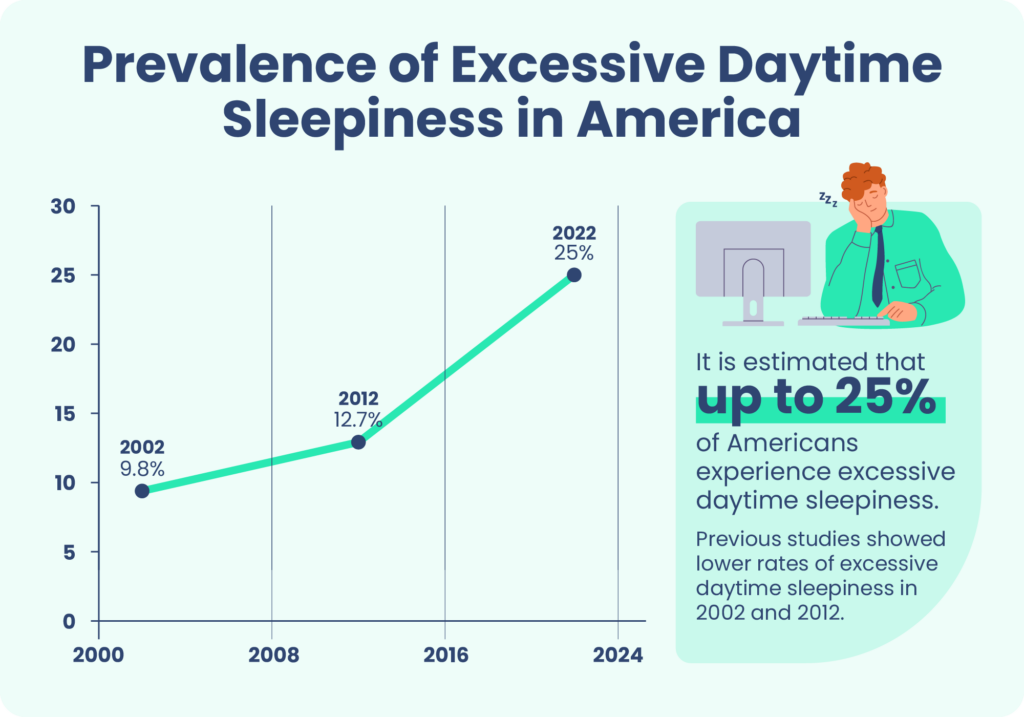
Sleep needs can vary from person to person, but if you are getting under seven hours of sleep each night, you are most likely underslept. Feeling extremely tired during the day is one of the hallmark symptoms of sleep deprivation. Additional symptoms of insufficient sleep include:
- Impaired thinking and memory
- Reduced attention span
- Poor or risky decision-making
- Mood changes, including feelings of stress, anxiety, or irritability
Looking to improve your sleep? Try upgrading your mattress.
Common Sleep Disorders Associated With Daytime Tiredness
Sleep disorders can reduce the amount of time a person spends sleeping, as well as a person’s ability to cycle through all stages of sleep without interruption. This is why excessive daytime sleepiness is a common symptom of several sleep disorders, including:
- Sleep apnea: Sleep apnea causes repeated pauses in breathing, often followed by gasping or choking. These symptoms can disrupt sleep.
- Circadian rhythm disorders: The sleep-wake cycle is one of many natural cycles, or circadian rhythms, that operate on a 24-hour clock. People with circadian rhythm disorders experience problems with their internal clocks that interfere with sleep.
- Sleep-related movement disorders: Disorders that cause unusual movements when a person is sleeping or trying to sleep can affect sleep quantity and quality. One such disorder is restless legs syndrome, which produces uncomfortable sensations and an uncontrollable urge to move one’s legs while lying down.
- Narcolepsy:Narcolepsy is a relatively rare neurological disorder that causes people to suddenly fall asleep, often at inappropriate times.
Additional Causes of Daytime Tiredness
Sometimes daytime tiredness can occur despite getting a full night’s sleep. Physiological and psychological factors can influence energy levels throughout the day, leading to feelings of exhaustion, fatigue, and sleepiness.
Physical Exhaustion
Regular exercise generally improves sleep at night and helps prevent daytime sleepiness. That said, high levels of physical exertion without sufficient recovery time can lead to fatigue and tiredness.
Working out too much, not taking days off, and engaging in physical activity when you feel sick or worn out all increase the risk of exercise-induced fatigue. Athletes and people with physically demanding jobs or caregiving responsibilities may be especially vulnerable to physical exhaustion.
Emotional Strain
If you are emotionally drained, you might feel tired during the day. Stress can lower your energy levels and even make you sleepy. Mood disorders such as depression and anxiety are also known to cause daytime sleepiness, sometimes even making it hard to get out of bed.
Mental Exhaustion
Whether you are planning a presentation at work, writing a report for school, or doing your taxes at home, spending many hours concentrating on a task can lead to mental fatigue. Mental fatigue is characterized by low energy and often accompanied by the feeling of needing a break. In addition to making it difficult to focus, mental fatigue can produce feelings of tiredness.
Social Fatigue
If you have social commitments early in the day, they might be the cause of your daytime tiredness. Socializing, particularly in group settings, requires focus, memory, emotional control, and awareness of others’ perceptions—all of which may lead to tiredness, though usually not right away.Evidence suggests that fatigue caused by socializing generally sets in two to three hours afterward. And contrary to popular opinion, socializing appears to lead to tiredness in both introverts and extroverts.
Tips to Prevent Sudden Tiredness During the Day
If you struggle with daytime tiredness, there are steps you can take to make sure that you feel alert during the day and get the sleep you need at night.
- Wake up and go to bed at the same time every day: Maintaining a consistent sleep schedule can help align your circadian rhythms, helping you feel awake during the day.
- Get exposure to sunlight: Bright light suppresses production of the sleep hormone melatonin, so try to get a little sunshine first thing in the morning or if you feel drowsy during the day.
- Drink caffeine strategically: Drinking a caffeinated beverage in the morning or early afternoon may help you combat daytime sleepiness, but avoid drinking caffeine too late in the day, as it may disrupt your sleep as many as six hours after you consume it.
- Exercise: Physical activity can boost your mood, help you feel more awake, and help you sleep better at night.
- Take a break: If you find that you are feeling physically exhausted, emotionally drained, or mentally depleted, take a break and allow yourself to recover.
If none of these strategies helps with your daytime tiredness—or if you suspect your daytime tiredness could be the result of a sleep disorder, health problem, or mental health condition—make sure to talk to a doctor. Your doctor can work with you to create an appropriate treatment plan.

Still have questions? Ask our community!
Join our Sleep Care Community — a trusted hub of product specialists, sleep health professionals, and people just like you. Whether you’re searching for the perfect mattress or need expert sleep advice, we’ve got you covered. Get personalized guidance from the experts who know sleep best.
References
2 Sources
-
Paruthi, S., Brooks, L. J., D’Ambrosio, C., Hall, W. A., Kotagal, S., Lloyd, R. M., Malow, B. A., Maski, K., Nichols, C., Quan, S. F., Rosen, C. L., Troester, M. M., & Wise, M. S. (2016). Consensus statement of the American Academy of Sleep Medicine on the recommended amount of sleep for healthy children: Methodology and discussion. Journal of Clinical Sleep Medicine, 12(11), 1549–1561.
https://pubmed.ncbi.nlm.nih.gov/27707447/ -
Leikas S. (2020). Sociable behavior is related to later fatigue: moment-to-moment patterns of behavior and tiredness. Heliyon, 6(5), e04033.
https://pubmed.ncbi.nlm.nih.gov/32490243



